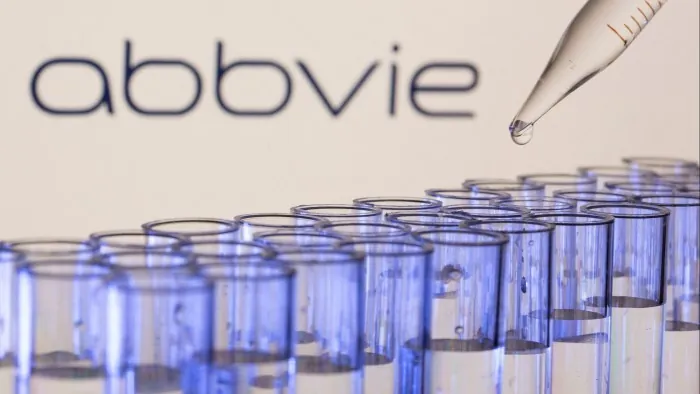
AbbVie Shares Plummet: Shocking Failures in Schizophrenia Drug Trials
2024-11-11
Author: Ken Lee
AbbVie Shares Plummet
In a dramatic turn of events, shares of AbbVie plummeted over 12% during Monday afternoon trading on Wall Street following the announcement that their experimental treatment for schizophrenia, Emraclidine, failed to achieve its primary goals in clinical trials. The failure has significant ramifications, erasing more than $40 billion from AbbVie's market capitalization and leaving it below the $310 billion mark.
High Hopes for Emraclidine
The Chicago-based pharmaceutical giant had high hopes for Emraclidine, acquired in an $8.7 billion deal with Cerevel Therapeutics last year. The phase-two trial, which included 752 schizophrenia patients, found no statistically significant reduction in psychotic symptoms compared to a placebo after six weeks of treatment. This setback poses a serious challenge for AbbVie as it attempts to carve out a competitive niche in the psychiatric market.
The Need for Innovative Treatments
Approximately 2.8 million adults in the United States suffer from schizophrenia, a debilitating mental health disorder characterized by psychotic episodes and social withdrawal. The search for effective new treatments is critical, with a notable scarcity in innovative options available to patients.
Competitors Making Gains
This news comes on the heels of Bristol Myers Squibb's (BMS) recent success with its schizophrenia drug, Cobenfy, which received approval from the US Food and Drug Administration last month—the first of its kind in decades. BMS has seen a surge in its stock price, boasting an 11% increase following AbbVie's disappointing trial results. Analysts speculate that the failure on AbbVie’s front will ultimately benefit BMS’s position in the market, particularly with its recent $14 billion acquisition of Karuna Therapeutics.
AbbVie’s Response
Roopal Thakkar, AbbVie’s Chief Scientific Officer, expressed disappointment but maintained that the company remains focused on its innovative pipeline and future research into psychiatric and neurological disorders. This resolve is crucial in a field notoriously difficult for pharmaceutical companies, as many have abandoned efforts in psychiatry due to the complexities involved.
Analysts’ Perspectives
While analysts have noted the setback for AbbVie as significant, there are differing perspectives on the overall impact. Evan Seigerman from BMO Capital Markets remarked that the results do not reflect well on AbbVie’s $8.7 billion acquisition of Cerevel, noting a clear victory for BMS with the Karuna deal. Conversely, Vamil Divan from Guggenheim Securities suggested that, despite the negative news, the initial stock sell-off might be exaggerated given that AbbVie will not face major patent expirations until 2029.
Investor Reactions
Investors are now left with bated breath, not just contemplating the implications of Emraclidine’s disappointing results, but also anticipating AbbVie’s next moves in a sector where groundbreaking developments are more elusive than ever. With high stakes in this treacherous field of psychiatry, companies like AbbVie must navigate uncertainty while striving to bring cutting-edge therapies to treat these complex mental health conditions.




 Brasil (PT)
Brasil (PT)
 Canada (EN)
Canada (EN)
 Chile (ES)
Chile (ES)
 España (ES)
España (ES)
 France (FR)
France (FR)
 Hong Kong (EN)
Hong Kong (EN)
 Italia (IT)
Italia (IT)
 日本 (JA)
日本 (JA)
 Magyarország (HU)
Magyarország (HU)
 Norge (NO)
Norge (NO)
 Polska (PL)
Polska (PL)
 Schweiz (DE)
Schweiz (DE)
 Singapore (EN)
Singapore (EN)
 Sverige (SV)
Sverige (SV)
 Suomi (FI)
Suomi (FI)
 Türkiye (TR)
Türkiye (TR)